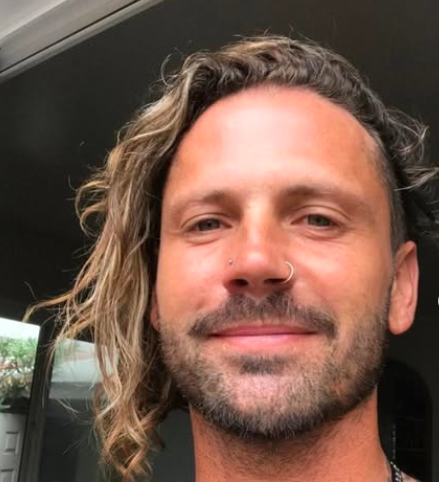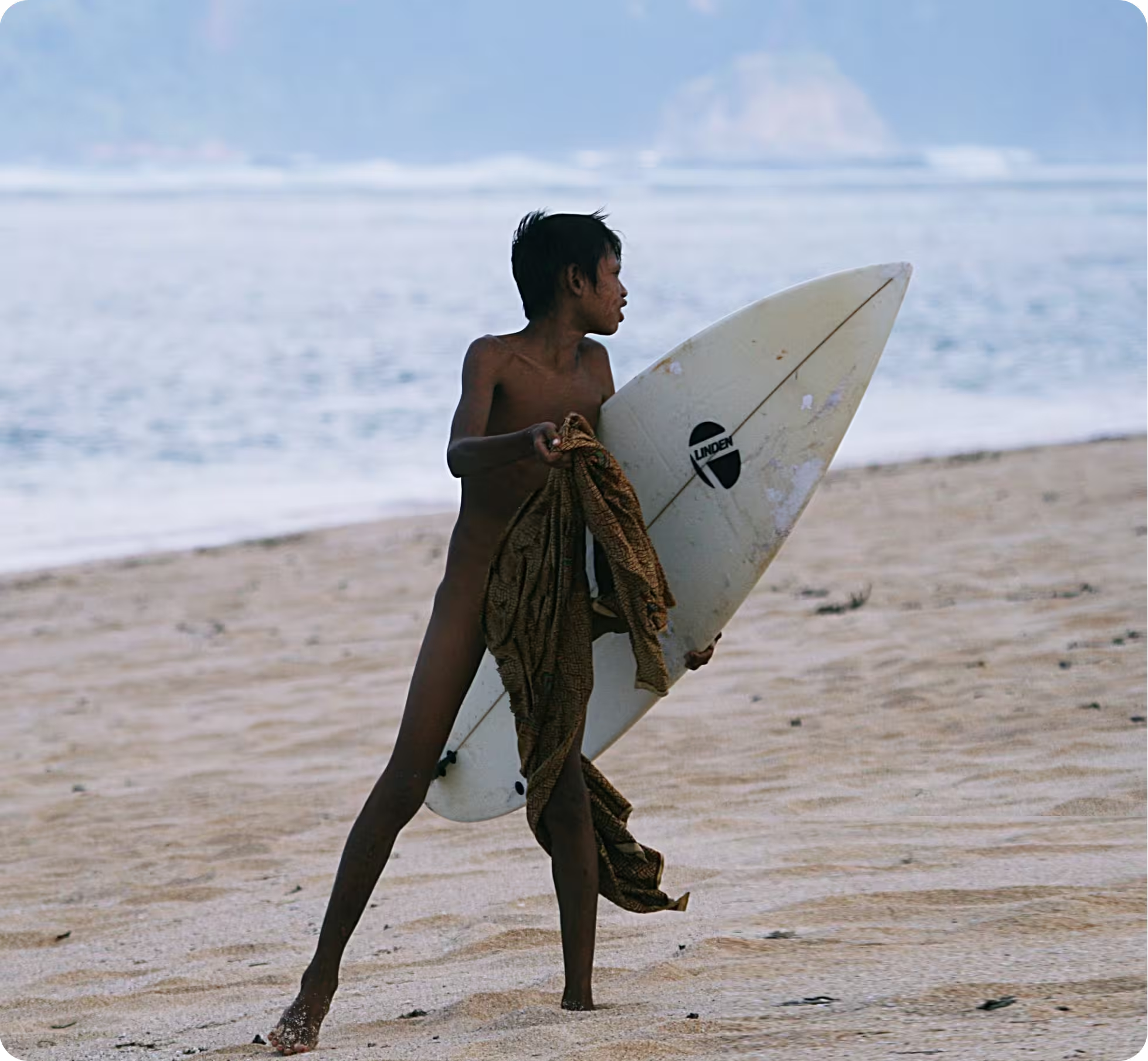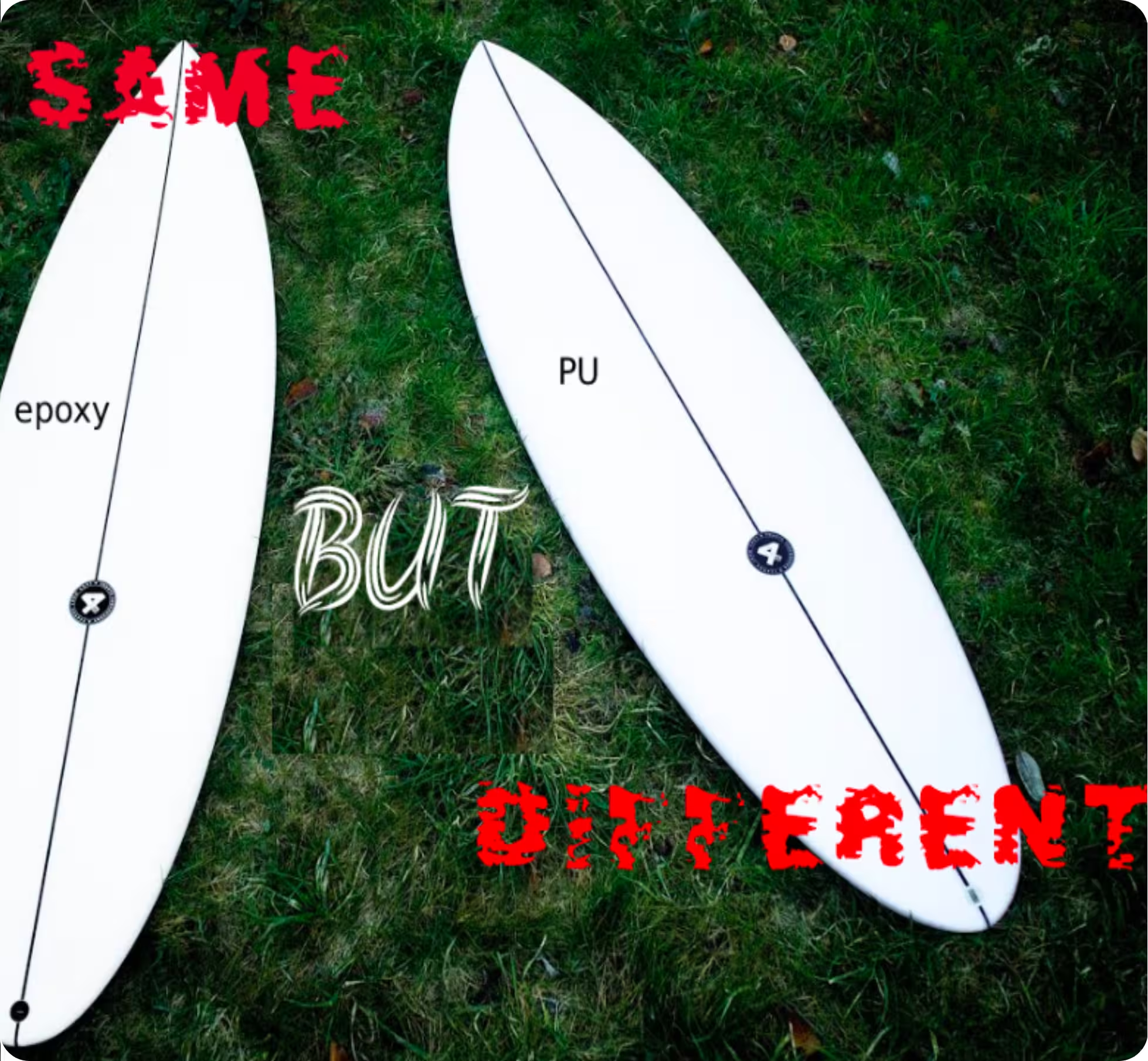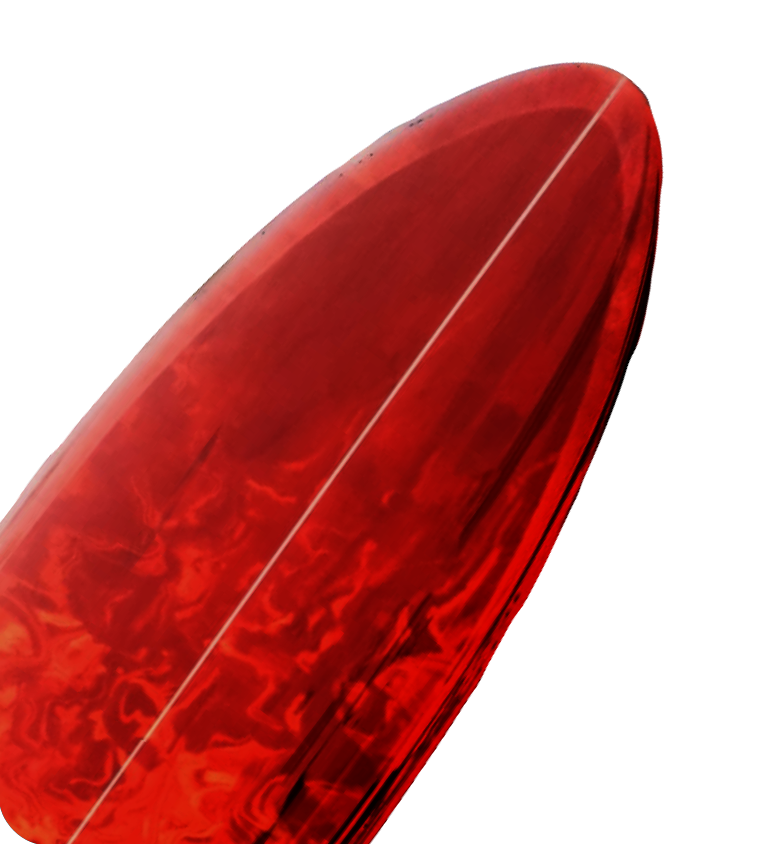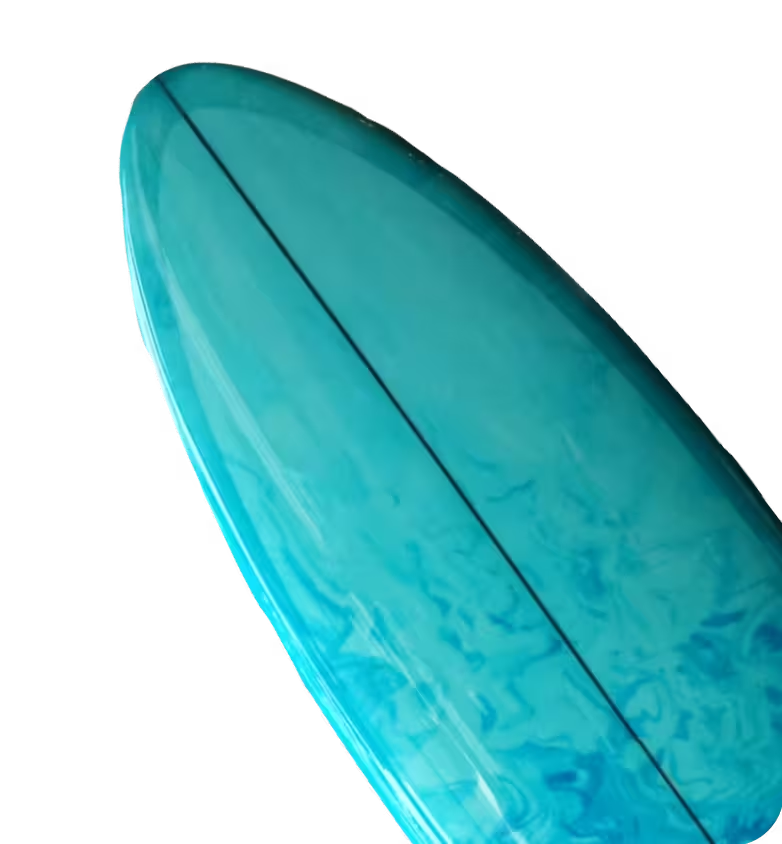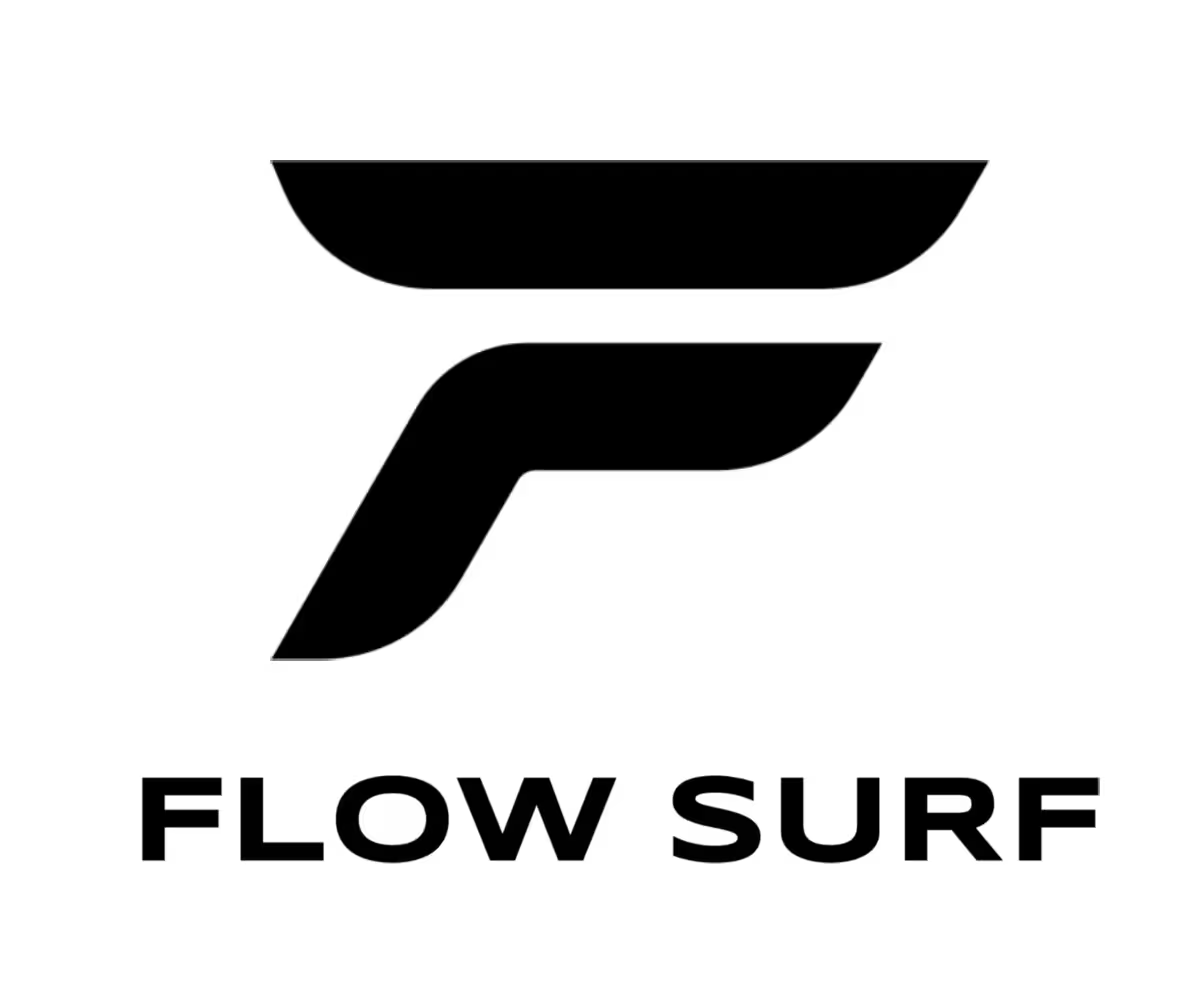I met with Muhamed Kimen, one of Lombok’s surfing pioneers, in early January of 2025. We sat at a back sat of his new coffee shop called My Day, right in the heart of Kuta Lombok. I later found out that Kimen, following his surfing career here in Lombok, had started a number of other businesses under his business management group, Vibes Hospitality, as well as having an organic farm called Sajang Retreat and Organic Farming. Very graciously he had the time to sit down with me and discuss some of the history surfing in Lombok. All the photo's in this blog are courtesy of South Lombok Surf Photography.
You can find the full interview, in print, in the upcoming Wave Star Lombok Surf Guide. Stay tuned! Enjoy!
Thanks for joining me. This is a history of surfing in Lombok, something we haven't seen around yet, or I have been having trouble finding. And from what I'm told, you're one of the first original local surfers, first surf schools and first surf shop. So maybe you could start by introducing yourself and how you got into surfing? Like what inspired you to start in the first place?
So my name is Kimen but my full name is Muhamad Hakimen. I live in this tourism, 32 years already, okay in Kuta, 32 years since that time. So one more original was Mr. Irwan Kanggar, or well known as Mr. Hir, he was our first surf guide. But, Mr. Hir, he just passed away last year.
Where was he from?
He was from here. He's originally from Sumba, but grew in Lombok, and in Praya and then came here and opened the first surf camps, a very small surf camp, with the Australian guys in the area.
Where was that?
Just here, where the surfers bar is now. And then in 1992 I started surfing, learning to surf, but then I just stopped for a while. You know, I started doing other things like guiding tourism, visiting the culture, and taking the guests to some waterfalls and local villages. I was 17 years old then.I had a book shop before I had the surf shop, you know, because, there's no internet or anything and so, people are obviously going to bring a book to the beach to read but then that's about the revolution of the internet time.
Not so much book demand anymore?
Yeah, there's no more people reading books and then I'm kind of like, what should I do, you know? And then I had a little book shop like this size, a little shop. And then my friend, who he's actually no longer himself surfing, opened a little shop with some surfboards. So I swapped my books. I swapped all my books with one surfboard. One 6’3 short board worth 3 million.
No way, that’s a big risk?
Ya because I want to surf and I don’t see any potential for people buying books or exchanging books and I need to live also and you know, there was an issue of religion at that time. So foreigners are very scared to come, to come to Lombok, and the only foreigners coming is the surfers. They don't care and they just want to go waves. And I can see, oh, this is the chance. I am next to a friend who opened a small surf shop and so we start to go back to surfing again. Okay, and so I started surfing in ‘92 and stopped, but then I came back surfing in ‘99. And and then there was the problem in 2000-2002 with religion again and conflict issues here. And then the Bali bombing, so everyone just left, and everyone was scared to come here, except surfers.
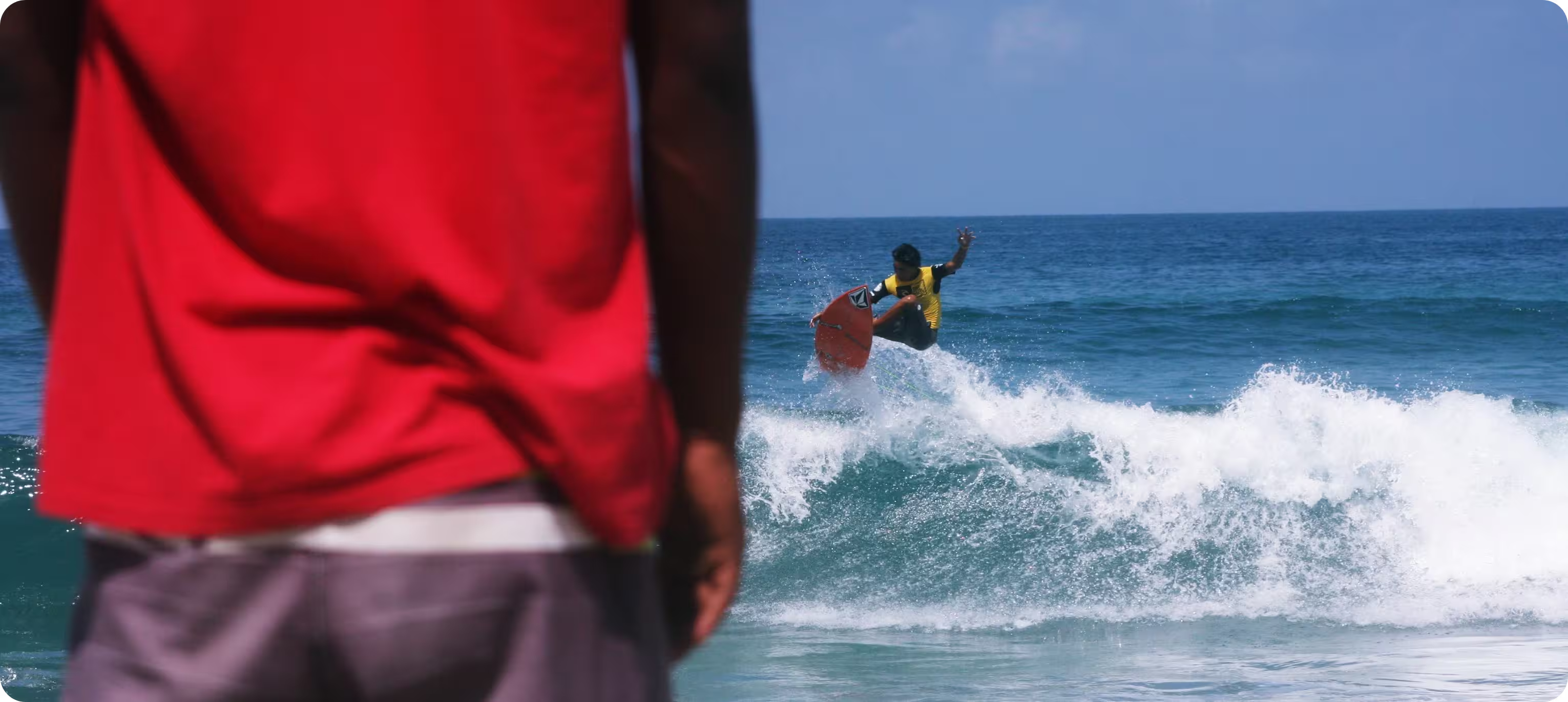
So at that time, I think, okay, I'll sell my books. I swap, actually, I swapped my books with 1 surfboard. I think was 6’3”. I'm not even know what size I should ride? I just think, oh, this is a good board. And I start to go back and then learn with some Australian friends. And then he shows me, like, you shouldn't ride this board. This is not your board. So he got me one big board. We bought, like a 6’10” or a bit bigger, I remember it was the wide one, and then I felt, oh, this is better. Yeah, because I'm just about to learn again. And then ya, the guiding start. Japanese, Australian…
Were there many people here? Obviously it’s changed a lot but was it busy already?
Still a lot of people but just surfers. I mean, like mostly surfing good too, no beginners, yeah, but in 2002 starting to open up.So at that time, I'm doing what I did before. I'm buying surfboards from foreigners or local surfers or Australian friends and I went to Bali to sell them. But then I’m thinking why? So then in 2002 I changed my mind and started to buy them in Bali and sell them here. And that’s when I opened the shop. Kimen Surf in 2004 and that's about 70 meters from here, center of now Kuta.
And so, how’d that go?
Yeah, cool. And then in 2004 I take my shop down, and then start to build, start to renting, and I have a partner, Symbiosis Surf Camp.So they actually needed the partner to operate and they have a lot of boards. I mean, like maybe four or six beginners boards and long boardsBut it is only the shop here and they tell me, “you can just put them on the beach for rental when we gone”. So with their board, I had the freedom to rent them out to anyone while they were closed. And from that, slowly, start to build up my shop.
Oh, no way cool. That was a good deal. Were there lots of local surfers by then?
Then it started. We started to get more locals surfers at that time.And then I have, well, relationships with Balinese surfer. And not just surfers, but the shops in Bali. So I started to buy stuff from Bali, you know, like surfing stuff, surfing products, Australian products, or things like that. At that time, mostly all coming as imports.No shapers at that time. I mean, like, commercial shapers, but for private ones, yeah, there's one or two, but mostly the surfboards are coming from Australia.
How long before this did surfing actually get here? Were the surfers here in the 70s and 80s?
I think really in the 90’s, it got to Lombok. Yeah, 90’s or late 80’s. But then it was very popular just around the 2000’s. And then, yeah, when I had my shop, I had to set up a website and whatever, because it is internet time. I have a relationship with Balinese group and Australian group in Bali and then started selling boards here in Lombok. And then I'm starting to teach my boys first how to be a coach. And then on and on, like that.
What breaks were people surfing at that time? Just out front in Kuta or for example, was Mawi discovered?
The most popular one at that time was Gerupuk. Yeah, all season. Then the dry season with the SE wind was Ekas and Mawi, yeah. And Desert Point of course.
Okay, so they were already discovered. Or did you discover any of them?
They were mostly discovered by the guys from Australia and we just following their steps. Okay, cool, yeah. But then, during my time, we have more people surfing than you know, I take care after many surfers. Like some days, maybe four or five, sometimes six different groups. So it's a very, you know, very random service. But actually, Kimen Surf was one of the most well known of the surf agencies, and the surf shops. So we had a lot of engagement with other agencies in France, Japan, the same as Australia, and then all throughout Bali, and then Lombok of course. But Bali is still the base.
And so, it really started to accelerate when the internet and Google started working?
Ya, and then it just started to go faster. We were fixing boats, taking people surfing, guiding, and we rented bikes, like all the common surf shops now.
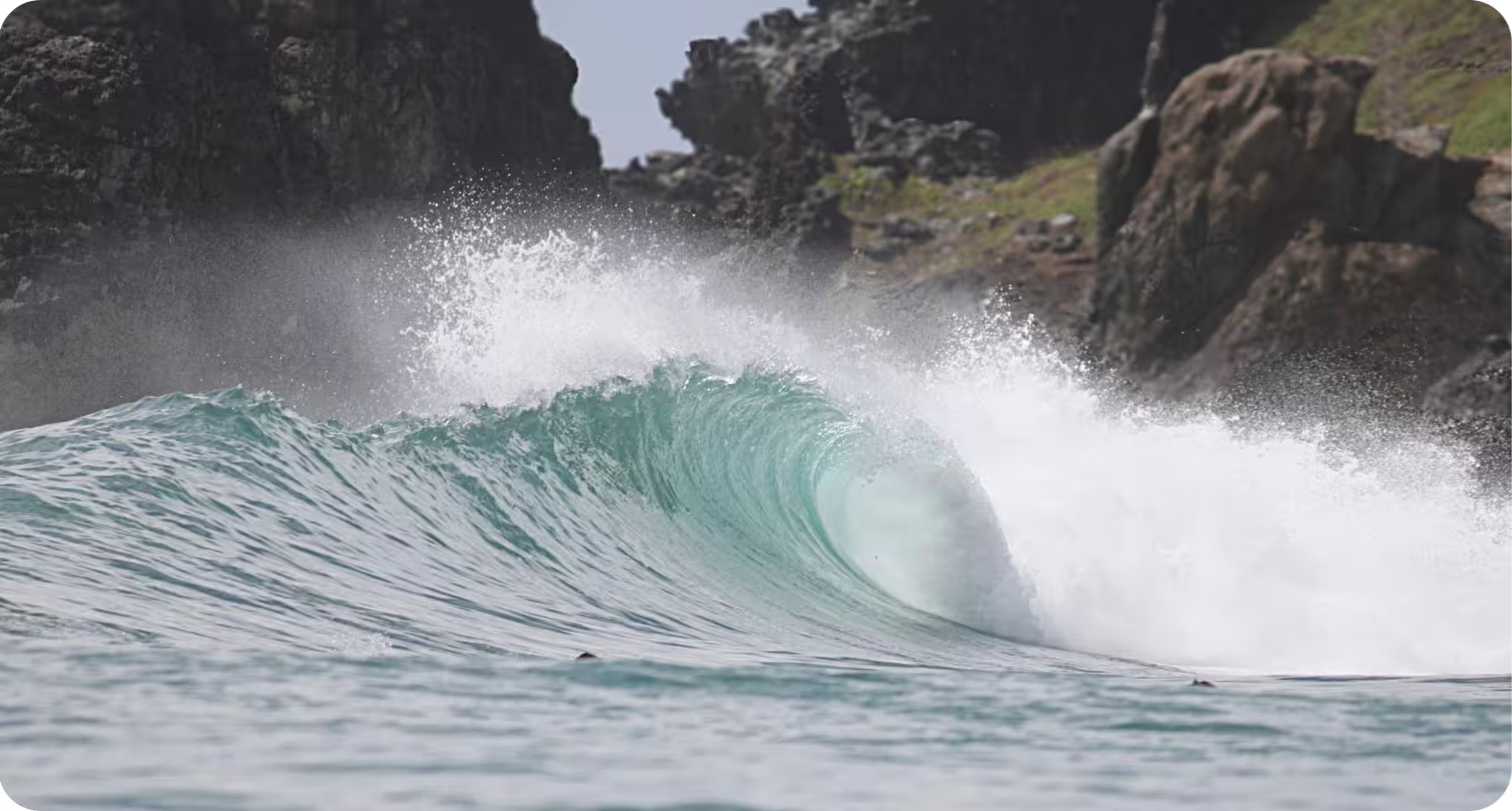
What's the biggest difference you see between then and now? Is it just a lot more beginners?
Yeah, because most of our spots here in Lombok are for all class of surfer, unless Banko-banko (Desert Point). We also start making our own clothing and doing video and surf photography. We make our own surf videos and start board shaping.
Ya, it seems like Lombok is well suited to all levels. Beginner, intermediate, advanced?
Ya, then it is still more like a surf commercial because not so many people are in the water at that time. Gerupuk, is a very nice surf spot with every level and nobody around really. Both light waves, good for beginners, and still get really good when is big.But then, we actually open the first shop in Selong Belenak. Because, yeah, that's for sure the easy spot to learn for total beginners. Because Gerupuk started getting more people and while we want to make more money as charter boat and guides, it made more sense for people to start there, than have so much paddle just to stand up hahah!
Yeah, that'd be a pretty long paddle for people on day 1! Lombok is pretty magic for having really all stages of surf, from 2x overhead, down to knee high on the same day. What was the biggest challenge in terms of spots to get to, back in the day?
We used to walk to Mawi. It's a long walk. But, then after that, this property company opened up the road to Mawi but it is still pretty rough to this day. Yeah, it's quite hard, at that moment, because, you know, you need to get a bike or car and it is still a little dangerous.
Going past Mawi towards Belongas bay, was that road even there?
It was there but, no, it was it not paved. We actually surfed Serangan when there was no road. Kimen Surf was the first locals to surf that in 2007. We walked up to the hill, I think we have some photos of that, and we just stay camping on the beach. We were with an American guy and his partner from Java, who actually have a little house there. So, they welcome us to stay there and they ask us to promote their place too. Was a really nice day. We had the afternoon surf, and then morning surf and it was actually epic, yeah, just by yourself at Serangan, wow! Pumping.
Amazing! So, surfing seems to be a very integral part of Lombok's economy now and has had a huge impact on the culture of South Lombok and Lombok in general. Do you see it as the center of tourism here? How do you think it's affected the culture over the years?
So during my time surfing here, we used to have the local spot Tanjung A’an, that before we weren't sharing and only locals can surf there. I mean with only the community surfers, I said, hey, this must be a local one. But, well, why were we doing that? Because, when we go with a group, when we have the guests who can pay for our boat and need guiding, we take them to Gerupuk but then when there is swell and Tanjung A’an working and when you don't have any any guests, when you know, your not guiding, you want to go surf by yourself. Which is most local want, and we want to go surf without any crowd, yeah. And Surf costs you almost nothing. Maybe only by bike, or sometimes we walk or some public transport. But it really opened up a sport for locals that they can afford and changed the sport scene for south Lombok a lot. Yeah, so keep one for ourselves. But then of course it’s not private anymore, because everyone just surfs there now. Yeah, it opened up
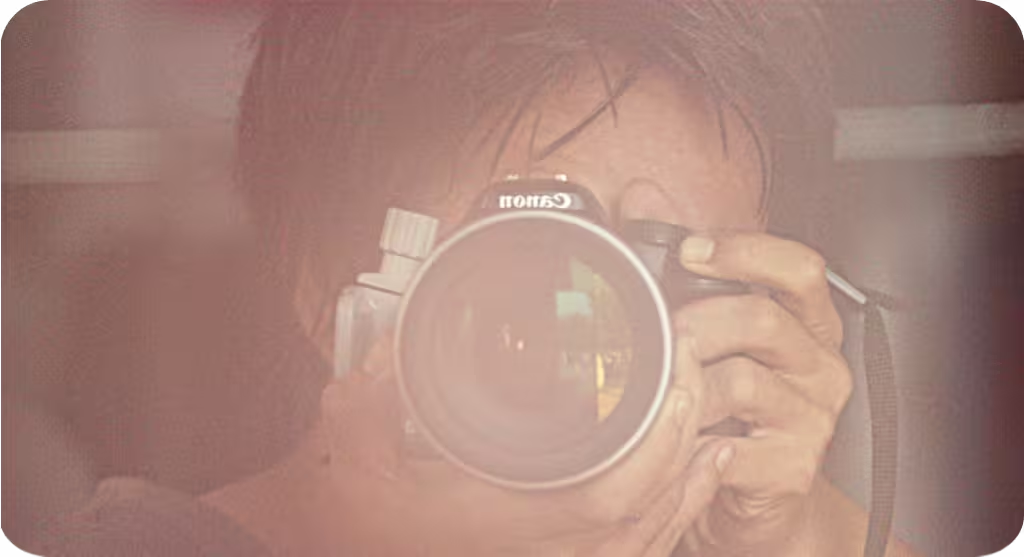
and I mean, this is good for local business but sad we do not have to ourselves because ya, the waves are really good there.
You don't have to name any, but I know there are still some secret spots hiding around. Yes, don't name any, haha, yeah, but there's a few around, I think on the island still?
Yeah, there are still some good spots that are never on the map, but they are close if you're looking. So, yeah, the difference is, today is more like commercial surfing, because at that time it's only one surf operator, but then now there's so many surf camps and all that, but this is natural. After everyone find out the surf in Lombok is good, is only a matter of time.
And do you think this has improved the overall environment in Lombok? Has there been any positive effects, or negative effects on the communities that you can mention?
Definitely positive because you have the local skill of surfers that can go compete and can be guides. They get to work, you know, teaching surfing, selling products. Plus, this place is growing, yeah, it's growing fast.
How are the locals here organized in terms of surfing?
So ya, we set up the first surf club here. We have one for Kuta. And that was 2004. But now there are more and more clubs, yeah, like a group for each bay or surf spot. Almost like different gangs and there is internal localism. They have some, you know, like pretty big egos. But it's pretty friendly at the same time.
Ya, I surfed in Bali for quite a few years, and I actually appreciate the local vibe here. I mean, they surf really well, and they definitely take their waves, but people are generally pretty friendly.
Ya, but now at this time there are more surf operators, more surf camps and, so people all have their own link, and then their own group. Everybody either works with a local surf operator or guides freelance, but they are mostly local and most surfers have jobs. Everyone has their different group and organization and affiliation.
And the organization between groups is pretty good?
The thing I see is that you can't stop people form surfing, or you can’t just schedule them, like, hey, I'm surfing now and you later. No, surfing is something natural and when it’s on for you, then now is good. So we can’t actually block people and say, ah, we go now with our group, and you go later. That's what locals are trying sometimes but, you know, to be honest, you can't. Best to just try to split up the group better and try and find good timing for your skill level, you know.
But yeah, do you see the surf camps just getting more and more or is there going to be a balance?
I think for land business, that's good, because you know it's good for this area. But the thing is, in the water, yeah, there's only so many waves and with so many people there will be less waves, yeah, that's true.But then it's, you know, it’s like a plus minus. It's good for people here and for the economy, but then when you actually go surfing, there's a lot of people in the water. But that's surfing, you know, people come here for waves but there is lots of life outside the water too. They dream about the waves here but most can’t stay forever and to be honest, most are just learning.
That’s true, and most people only surf a few hours a day. Lombok has a lot of other activities to offer. More and more every day.
Yes, we must welcome this development or improvement of our tourism.
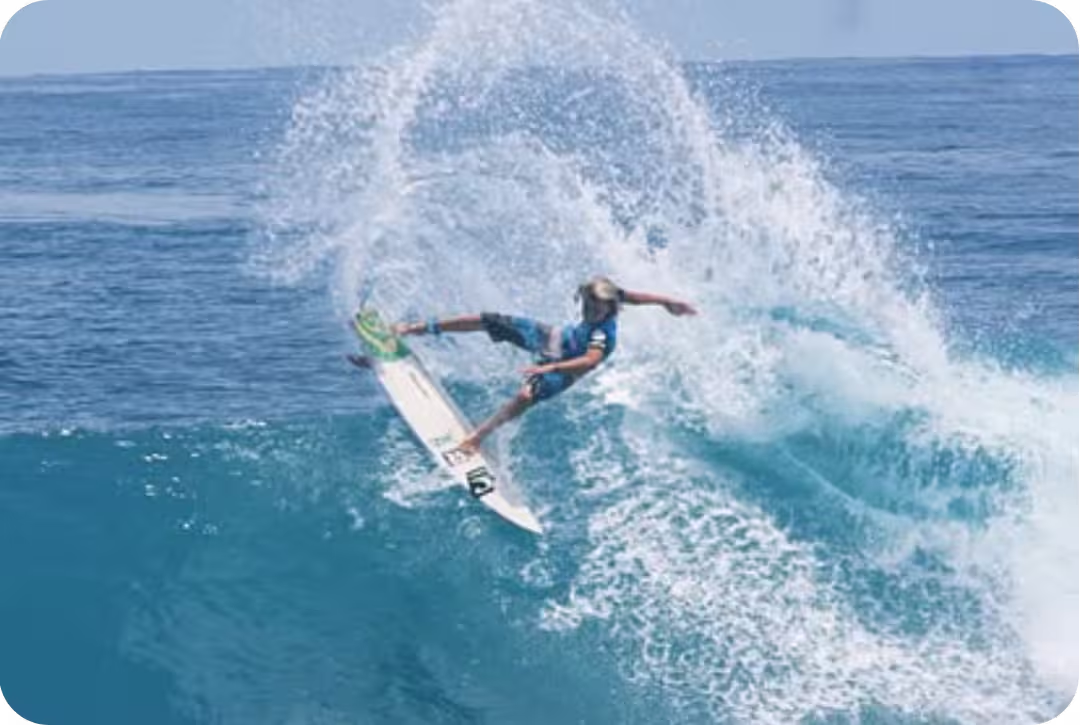
This is not just traditional or natural tourism, but also something like a sport tourism or fishing tourism. And surfing is just one of the identities that Lombok brings to the table.
Well, the name ‘Lombok’ means honest in Sasak, ya? And without the ‘L’ is ombak, which means ‘wave’? Honest waves haha. Not a bad start for an island of surfing, I think, yeah. What advice would you give to younger surfers or other surf camps, starting businesses?
Haha I guess so! Ya I think until today, all the voices are always asking me to be there. Kinda like I’m one of the fathers of surfing here or whatever and so many groups seeking advice from me. Until today, especially with all clubs, because the guys who are in charge now, the ones who have been doing the most work, know we were really fundamental in building the surf industry here. A lot of them were groms that we helped start from the bottom up.
So you and your group, you're essentially the original core local network to pioneer surfing here?
Yes, in the early days because if you were working here in surfing you used to work for us. We would have surfers work for our head school and then as they become the elders, they end up setting up new businesses of their own. And we were also sponsoring local surfers not just for jobs but we support them for travel to Bali, to Sumbawa and to other spots for regional competitions and national competitions. We follow the surfer style, you know? Yeah, like we employ them. I mean, but also, we give them support, clothing and plus extra money.So this is a good lifestyle. Inspiring the kids to keep safe and stay healthy. Yeah, don't get into trouble, but not too hard like that. They always gonna go some partying and stuff like that but need some leadership too.
Yeah, surfers and young surfers especially are always going to do some partying but surfing keeps us a bit honest. If you're not surfing, there might be a reason. Cool. Is there any memory from the last, like, 20 years or crazy story that stands out in your memory? That you'd like to share.
I had an accident in 2012 that paralyze my arm and so my last surf was October, 2012. But before that, I had a lot of memories of surfing. You know, you almost drown sometimes, some big waves you never forget, even some small waves, fights with others in the water. Those kinds of things. They’re all very good memories for me. I used to be a very hard surfer. Like if people were taking too many waves, I was ready to fight, throw my board at them.
Basically, don’t screw with Kimen?
Ya! Haha But of course I soften up over the years. But I have many nice memories. One time, I go to outside Gerupuk, there were only four of us. I think it was about six to eight foot that time and I was going to help someone. He was a beginner and obviously he should not be there. He was just joining the boat of his Captain because he wanted to see people surfing, wanted to get close to it. But it was big, I mean, six to eight foot solid. Big enough that he was 100% in the wrong place for him. And then he just jumped into the water. So I’m going over to ask him not to, because it's dangerous. You know, even you can be a good swimmer but you know, these are serious waves! And then when I saw him paralyzed with fear, now, definitely, he can't be here. So I'm trying to help him, or ask him to get in or go back to the boat that way.
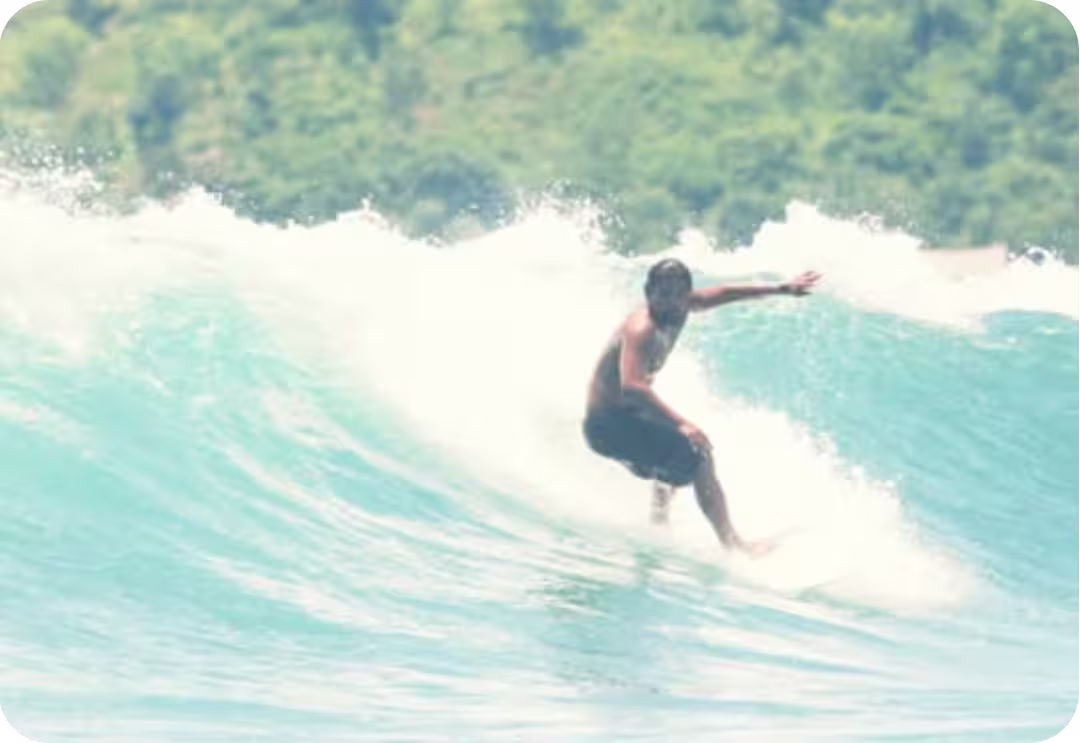
But then this wave hit me and then my leash was off. So this guy is now helping rescue me!All of a sudden I’m calling him, “ help me. Don't leave. Don't leave. I changed my mind!” We are so far from the boat and both being dragged by 5 maybe 6 waves set both inside. Just remember it being such a crazy switch of roles for a moment. The ocean always a teacher, always make you humble.
Ya surfing can get pretty wild. Is there anything else you'd like to share about the history, culture of surfing in Lombok, anything that stands out to you?
I’d like to see our local surfers going to national and international competition. Surfing is something that is for local friends and good vibes. You know, we want them to feel like surfing is a sport for you and its lifestyle, and then you can truly choose to go there as a national athlete or whatever, but then you come back here as a local and stay humble. Yeah, kindness coming from each other, not just to the foreigners but to each other and to the guests of Lombok. Because, you know, the feeling of surfing is so great but when you feel like, ‘I don't like this guy’, I don't care where he is from, but that's on your time. No point in surfing if it makes you feel angry. Better do something else.And I used to be quite provocative sometimes. When I was about surfing, I would just get mad at anyone, foreigner or local and be like, go home. I would get so mad!
So, you've been changed? More about sharing love and respect now?
Ya, I mean, so because maybe the feeling of surfing is about freedom and good vibes, but you know, people can be greedy with the waves and it makes everyone stressed out. It's supposed to be fun.
So, yeah. I know the boys are ok but I know one or two, I would say foreigners, are also sometimes arrogant. But then again I also know some locals are arrogant too. Hopefully the local guides can bridge partnerships to the other locals in our surf culture. Competition is competition but we gotta keep the vibes high. Surfing is supposed to be fun. Hard but fun!
Is there anything else you'd like to share about the history, culture of surfing in Lombok, anything that stands out to you?
The boys have mentioned to me, ‘what can we do with these surf camps’, but in that surf camp, this is your brother’s work and in that surf camp is your cousin's work, so you have to communicate. I think the communication is huge and realize that we are all here working together and trying to learn how to enjoy surfing and respect each other.
And so last note if you have any?
Lombok has something very special going on and I’m happy to see all the boys growing into leaders of the surf community. Let’s keep the competition healthy and happy vibes everywhere. I’d like to also mention a few people that were not mentioned and that are of big respect in the foundations of surfing Lombok. Big respect and big love to: Mr. Alaf, the man who do book swap original from Ocean Blue and Samsul, the first boat operator in Gerupuk!
You can find the full interview, in print, in the upcoming Wave Star Lombok Surf Guide. Stay tuned!

